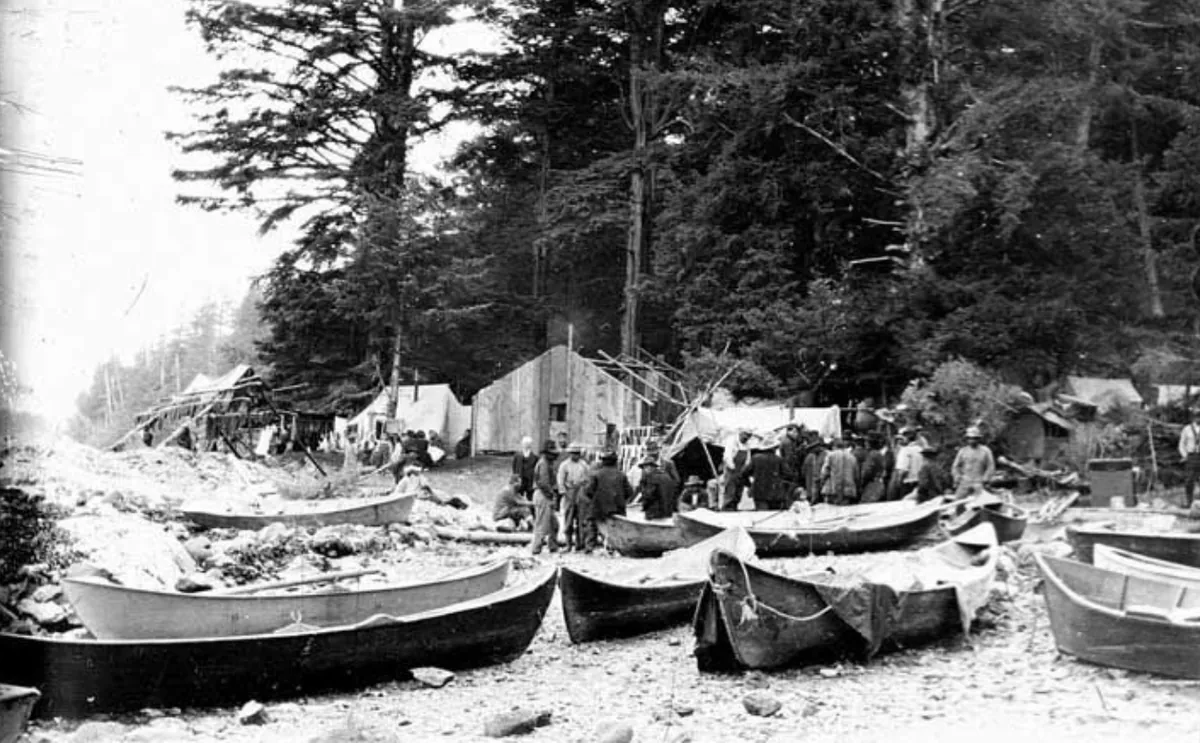U.S. Navy to Apologize for 19th Century Attacks on Alaskan Lingít Villages
The U.S. Navy will issue formal apologies for attacks on Lingít villages in Alaska over 140 years ago. Community leaders welcome the gesture but highlight ongoing challenges faced by their people.

In a significant move towards reconciliation, the U.S. Navy is set to issue formal apologies for attacks on Lingít (also known as Tlingit) villages in Alaska that occurred over 140 years ago. The apologies, scheduled for September 21 and October 26, 2024, address the devastating assaults on Kake in 1869 and Angoon in 1882, respectively.
The attacks, which took place shortly after the Alaska Purchase of 1867, resulted in the destruction of homes, food stores, and essential canoes. These actions inflicted severe hardship on the Lingít people, who have inhabited the Alaskan panhandle for at least 10,000 years. The Lingít, whose name means "People of the Tides," have long practiced subsistence living, relying on the region's abundant marine resources.
Rear Adm. Mark Sucato will deliver the Navy's message, acknowledging the "wrongful" actions that caused "multigenerational trauma." This rare concession from the U.S. military comes as part of a broader effort to address historical injustices against Native American communities.
The attack on Kake, known misleadingly as the "Kake War," occurred in February 1869 when the USS Saginaw, a sloop-of-war, bombarded the village. Joel Jackson, president of the Organized Village of Kake, emphasized that the assault was one-sided and targeted civilians. While no immediate casualties were reported, the destruction of food supplies and canoes during winter led to significant suffering.
Thirteen years later, a misunderstanding led to the attack on Angoon. Following an accidental death, cultural differences in handling compensation escalated tensions. Commander E.C. Merriman ordered the assault, resulting in the destruction of homes and essential resources. Billy Jones, then 13 years old, witnessed the devastation and later shared his account, preserving the community's oral history.
The Lingít communities have shown remarkable resilience in the face of these historical traumas. A single surviving canoe with a beaver-carved prow became a symbol of survival for Angoon. Garfield George, known as Kaaxooutch and house master of Deishú Hít, will lead the commemoration ceremony on the 142nd anniversary of the Angoon attack.
While community leaders welcome the Navy's apology, they also highlight ongoing challenges. Joel Jackson noted that the apology is "a start" but emphasized that it cannot erase the past. The isolated communities of Kake and Angoon continue to face issues such as limited infrastructure, high unemployment, and the lingering effects of historical injustices.
As the U.S. military takes steps to address its past actions, including a review of commendations awarded for the 1890 Wounded Knee Massacre, these apologies mark a significant moment in the ongoing process of reconciliation and healing between the federal government and Native American communities.
"The military responded probably the only way they knew how, without having an understanding of the culture and the people and the language."
This acknowledgment of past wrongs opens a dialogue for addressing current needs and fostering a more inclusive future. As the Lingít people continue to preserve their rich cultural heritage and traditional practices, these apologies serve as a reminder of the importance of cultural understanding and respect in building stronger, more equitable relationships between nations and indigenous communities.


































